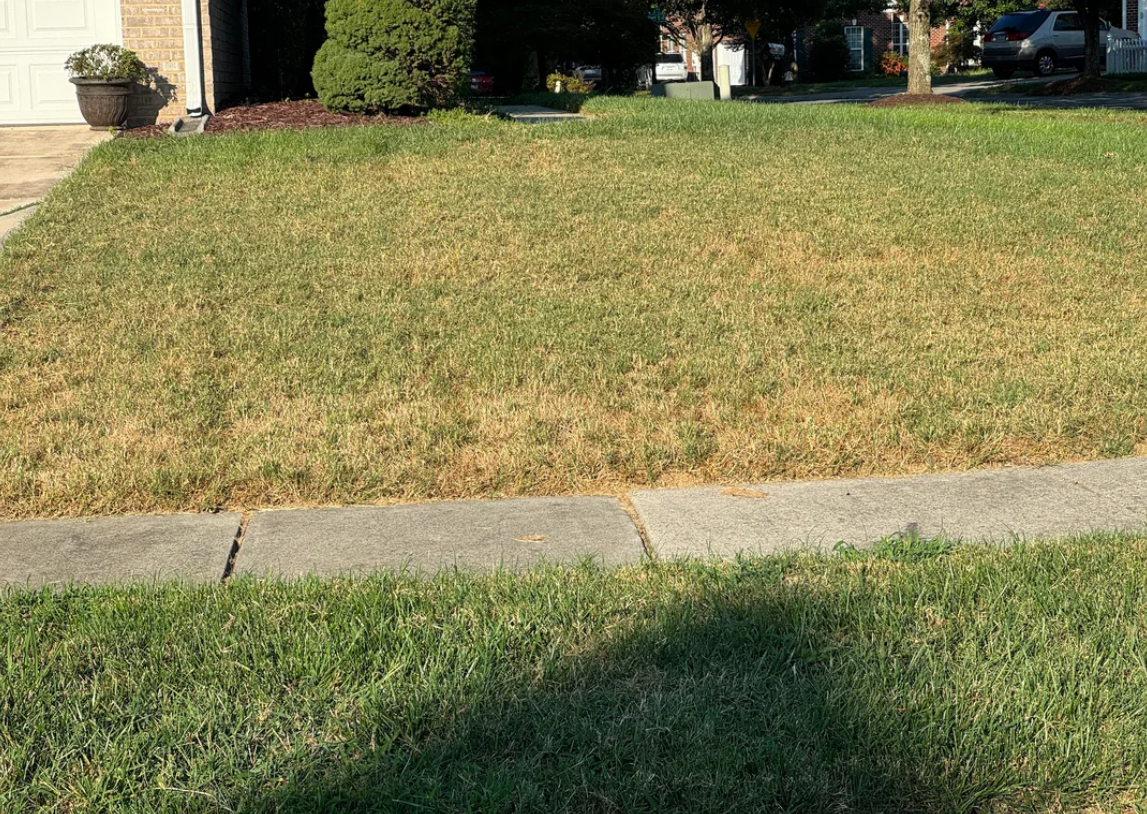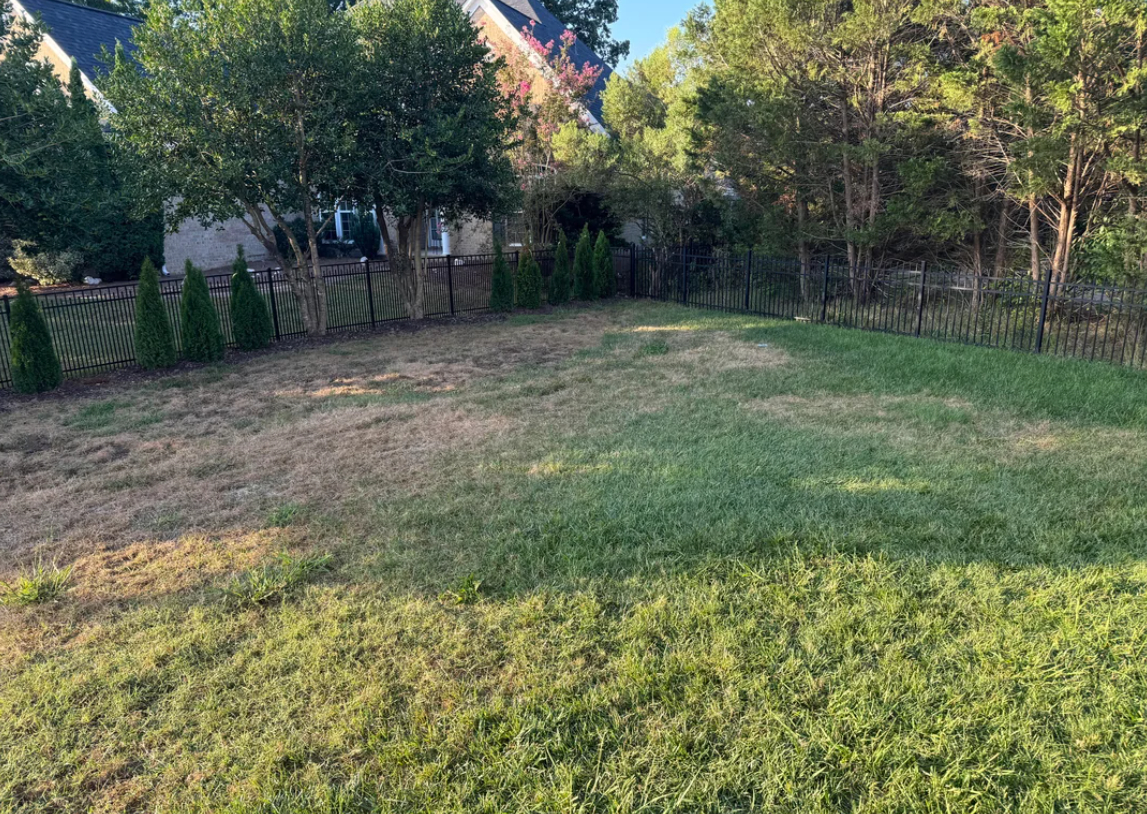Nobody likes dead grass, and one Redditor from North Carolina was no exception when their lawn mysteriously kicked the bucket.
The homeowner posted several photos in the r/LawnCare subreddit, showing a healthy green grass lawn that suddenly browned over.
"It was a rough summer," they wrote in their request for help. "We survived the early drought, July heat, and August washouts. Noticed some new browning and bam, 3 days later. Dead."
They explained how upon closer inspection, it became clear that armyworms had taken over and eaten up the lawn, causing it to die.
This tale is unfortunately common for traditional turf lawn owners.
The specific grass used, Bermuda, is not native to the United States. It, along with Kentucky bluegrass, has become a target for pests, leading many homeowners or landlords to use chemicals to preserve the green carpet that is bad for the surrounding environment.
Plus, the process of seeding and reseeding large lawns requires keeping up with tons of watering.
"We are near Atlanta and our lawn has deserted us in a matter of days," lamented a fellow turf lawn owner in the comments.
Luckily, there's a simple solution to all of the above — going natural.
Where non-native grasses stand out and need extra maintenance, native grasses blend in so well that they hardly need any extra care. They are also more resilient against lawn pests and even help out the local ecosystem.
Know what that means? No more huge water bills in the summer, and no more emergency runs to Home Depot for chemical reinforcements.
"It looks pretty dead in spots," the original poster commented. "Was going to treat for the [worms] then rake it out to see what's left. Just unsure what to put down to grow."
"If you get behind on watering you're lookin at one hell of a water bill," warned another.
Even a partial conversion to a smaller, less manicured lawn can make a difference, as can other methods of cutting back water usage like xeriscaping.
In many cases, homeowners associations can be a hurdle to get past. As the original poster pointed out, theirs would not allow a clover or wildflower lawn, two popular native plant choices.
Ideally, other options like buffalo grass or local sedges are allowed, but either way, those doors can be opened by working to change HOA bylaws.
Join our free newsletter for easy tips to save more and waste less, and don't miss this cool list of easy ways to help yourself while helping the planet.











